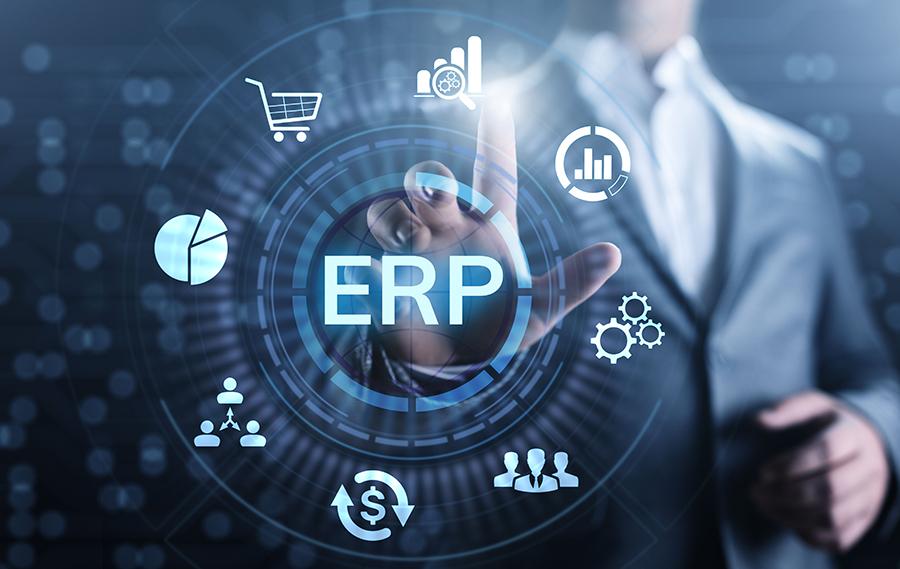In today's fast-paced business environment, it's more important than ever to have an efficient and streamlined way of managing your organization's resources. Enterprise Resource Planning (ERP) software is a revolutionary tool that can help you do just that. By integrating all of your business processes into one central system, ERP software can boost productivity and collaboration across your entire organization. From inventory management and accounting to human resources and customer relationship management, erp software can help you automate and streamline your business processes, leading to increased efficiency and profitability. If you're looking to take your business management to the next level, read on to learn more about how ERP software can help you revolutionize the way you do business.
What is ERP software and how does it work?
ERP (Enterprise Resource Planning) software is a powerful tool that helps businesses manage their day-to-day operations and processes. It integrates and streamlines different business areas, such as finance, human resources, procurement, inventory management, and customer relationship management (CRM), into a central system. This means that all departments can work together efficiently, with real-time access to the same data, leading to better communication, collaboration, and decision making.
ERP software works by collecting data from different departments and storing it in a centralized database. This data is then organized and processed to provide insights and analytics that can help businesses identify trends, forecast demand, and optimize their operations. For example, if a customer places an order, the ERP system will automatically update the inventory level, generate an invoice, and allocate resources to fulfill the order. This means that employees no longer have to manually enter data into different systems, reducing the risk of human error and saving time.
Another key feature of ERP software is its ability to automate workflows and processes. For example, when a purchase order is received, the system can automatically send a request to the supplier, generate a receipt, and update the inventory. This not only saves time but also ensures that processes are standardized across the organization, reducing the risk of errors and improving efficiency.
Overall, ERP software is a powerful tool that can revolutionize the way businesses manage their operations. By providing real-time access to data, automating processes, and improving communication and collaboration, ERP software can help businesses boost productivity, reduce costs, and stay competitive in today's fast-paced business environment.
The evolution of business management and technology
The evolution of business management and technology has been a key factor in the development of best erp software. In the early days of business, companies used basic record-keeping systems and manual processes to manage their operations. As businesses grew, more complex systems were required to manage inventory, finances, and other critical business functions.
With the introduction of computer technology, businesses began to automate many of these processes, leading to the development of software applications specifically designed to manage specific business functions. These applications were often disconnected from each other and required manual data entry and reconciliation to ensure that information was accurate and up-to-date.
Over time, businesses began to recognize the limitations of these legacy systems and sought ways to integrate them into a more comprehensive solution. This led to the development of ERP software, which provided a single, integrated solution for managing all aspects of a company's operations.
Today, ERP software is an essential tool for businesses of all sizes, providing a scalable and flexible solution that can be customized to meet the specific needs of each organization. With the ability to manage everything from finance and accounting to supply chain management and human resources, ERP software has revolutionized the way businesses operate, enabling them to streamline their operations, boost productivity, and collaborate more effectively. As technology continues to evolve, ERP software will undoubtedly continue to play a critical role in the success of businesses worldwide.
The benefits of implementing ERP software
Implementing an ERP (Enterprise Resource Planning) software system can bring numerous benefits to a business, regardless of its size or industry. One of the main advantages is increased productivity and efficiency in operations. ERP software integrates all the different functions of a business, including finance, sales, inventory, and human resources, into one system, providing a centralized view of the organization's data. This means that employees can easily access information that they need to complete their tasks, reducing the time they spend searching for data and allowing them to focus on more value-adding activities.
Additionally, ERP software can help businesses improve collaboration and communication across different departments and teams. With a centralized database, employees can share information and work together more effectively, reducing the likelihood of errors, miscommunications, and duplication of work. This can lead to faster decision-making, streamlined processes, and better business outcomes.
Another benefit of ERP software is that it can provide businesses with more accurate and up-to-date information, allowing them to make data-driven decisions. By having a real-time view of their operations, businesses can identify trends, anticipate challenges, and make informed strategic decisions. This can help them stay ahead of the competition and adapt to changing market conditions.
Overall, implementing an ERP software system can help businesses improve their productivity, collaboration, and decision-making capabilities, leading to increased profitability and growth.
Improved productivity through automation and centralization
One of the most significant benefits of an ERP software system is its ability to improve productivity through automation and centralization. By automating routine tasks, such as data entry and financial reporting, your employees can focus on more value-add activities that require creativity and critical thinking.
For example, with an ERP system, you can automate and streamline your financial processes, such as accounts payable and receivable, invoicing, and financial reporting. This eliminates the need for manual data entry and reduces the risk of errors, saving your team time and frustration.
Centralization is another key advantage of an erp software companies. Instead of using disparate systems and spreadsheets to manage different aspects of your business, an ERP system consolidates all your data into a single, integrated platform. This enables your team to access real-time data and insights, collaborate more effectively, and make more informed decisions.
By centralizing your data, information is consistent, accurate, and up-to-date, which improves collaboration and decision-making across teams. This also reduces the risk of errors and improves the overall efficiency of your business processes.
In conclusion, an ERP software system can help you improve productivity and collaboration by automating routine tasks and centralizing your data. This enables your team to focus on high-priority activities and make more informed decisions, helping your business to grow and thrive.
Enhanced collaboration and data sharing
Collaboration is key in any business, and ERP software enhances this by providing a platform for data sharing and collaboration across different departments and teams.
With ERP software, all data is stored in one central location and accessible to all authorized personnel. This means that teams can easily share information, track progress and work together on projects without having to send emails back and forth or rely on outdated spreadsheets.
The software also allows for real-time updates, so everyone is working with the most up-to-date information. This ensures that decisions are being made based on accurate information and that everyone is on the same page.
In addition, ERP software can improve collaboration across different locations. With cloud-based ERP systems, teams can access the same information regardless of where they are located. This is particularly useful for companies with multiple offices or remote workers.
By improving collaboration and data sharing, ERP software can help to break down silos and improve communication across an organization. This, in turn, can lead to increased productivity, better decision-making, and a more unified and efficient business.
Streamlined processes and reduced errors
One of the biggest benefits of implementing an ERP system in your business is the streamlined processes and reduction of errors. With an ERP system, you can automate many of the manual processes that are prone to errors when done manually. For instance, an ERP system can automate inventory management, order processing, and financial reporting. This reduces the chances of human errors and speeds up the process of performing these tasks.
With streamlined processes, your employees can focus on more critical tasks such as customer service and product development. They don't have to worry about mundane tasks that can be automated, leaving them with more time to focus on the core functions of the business. This leads to increased productivity, which translates to more revenue for the business.
ERP systems also provide real-time data that allows you to make informed decisions. You can track your inventory levels in real-time, monitor sales, and track production. This helps you make informed decisions about how to allocate resources, which products to promote, and which ones to discontinue. With an ERP system, you can quickly identify potential issues and act on them before they become major problems.
In conclusion, implementing an ERP system in your business can help streamline processes, reduce errors, and increase productivity. With an ERP system, you can focus on the core functions of your business, make informed decisions, and ultimately, boost your bottom line.






